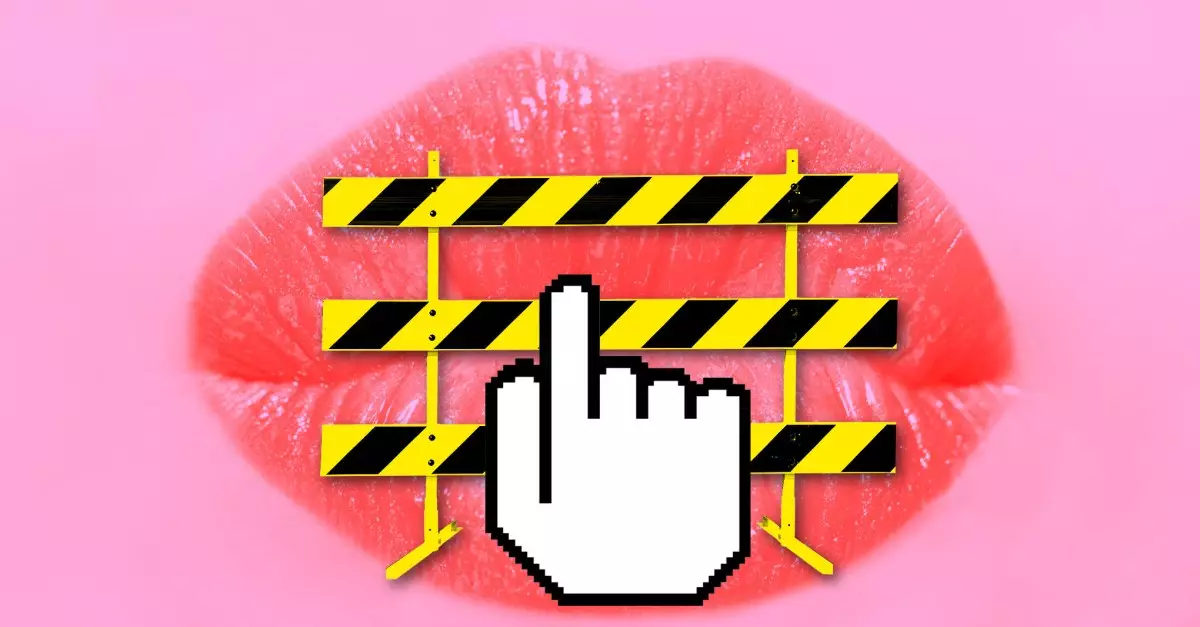In recent years, the landscape of online content distribution has dramatically shifted, revealing the significant sway that financial institutions and payment processors hold over digital communities. Platforms that once thrived as open and diverse marketplaces are now subjected to the constraints of corporate financial policies. This trend highlights a troubling erosion of autonomy for creators and consumers alike. As payment providers tighten their grip, the future of digital expression is increasingly dictated not by community standards or creative freedom but by the often opaque and profit-driven considerations of financial gatekeepers.
The Consequences of Financial Gatekeeping for Creative Diversity
Platforms like Itch.io and Steam, initially heralded as havens for indie developers and niche content, are succumbing to the pressures exerted by credit card companies and payment processors. These institutions enforce strict content restrictions, especially concerning adult and NSFW material, which represent vital segments for many independent creators. When these companies decide to deindex or remove certain content without prior warning, they effectively silence diverse voices and hinder artistic expression. Such abrupt censorship not only damages individual creators financially but also stifles the creative ecosystem by narrowing the scope of what can be legally or financially permissible. The covert influence of payment policies results in a homogenized landscape where only widely accepted, and often sanitized, content can flourish.
The Fallout from Regulatory and Commercial Pressures
Behind the scenes, regulatory frameworks and corporate interests are often intertwined with the directives from payment giants. Visa, Mastercard, and other financial entities routinely implement policies that prohibit certain categories of content, citing legal and compliance concerns. These restrictions force platform owners to choose between losing critical payment processing capabilities and risking their community’s diversity. The recent purge of adult content from Itch.io and Steam underscores the profound impact of these policies. For creators, this is not merely a matter of content moderation—it’s a question of survival. The sudden removal of content without warning exemplifies the precarious position of independent developers who rely heavily on these digital marketplaces, further emphasizing the power imbalance between content creators and financial institutions.
The Echoes of Tumblr and the Dangers of Overreach
Historically, platforms like Tumblr serve as cautionary tales. The 2018 decision to ban pornographic content was primarily driven by external pressure from credit card processors concerned about illegal or inappropriate content. This move resulted in a significant user exodus, illustrating how financial constraints can override community values or free expression. Such instances demonstrate that when payment providers wield disproportionate influence, platforms are forced into draconian choices, often sacrificing core community principles. This serves as a warning for current and future digital spaces. If the financial influences continue to dominate, the result could be a homogenized online environment with limited spaces for marginalized or non-mainstream voices.
The Broader Implications for Digital Sovereignty
The creeping influence of payment processors challenges the very idea of digital sovereignty—the notion that online platforms should be autonomous realms governed by community standards and democratic values. Instead, we increasingly see a landscape where financial compliance dictates what can and cannot be shared, purchased, or accessed. Such a paradigm shift raises fundamental questions about freedom of expression and consumer rights in the digital world. As platforms like Itch.io attempt to navigate these treacherous waters, the outcome will likely set precedents for how independent creators and niche communities can operate in the future. Will they find ways to circumvent these restrictions, or will they be forced into self-censorship and relinquishing control? The choices made today will undoubtedly shape the resilience of digital diversity for years to come.
The Search for Balance in a Profit-Driven System
At the heart of this crisis lies a fundamental tension: the desire to preserve creative freedom against the commercial realities imposed by payment infrastructure companies. While some argue that content restrictions are necessary to comply with legal frameworks and protect users, the wholesale suppression of entire categories of content reveals a deeper flaw—an overreliance on external financial systems that prioritize risk mitigation over community integrity. For independent creators, the challenge is to seek alternative avenues for distribution that resist the encroaching influence of profit-driven gatekeeping. The potential rise of decentralized or blockchain-based marketplaces might represent a new frontier, offering a space where content owners retain control over their work without succumbing to corporate pressures. Until then, the digital community must grapple with the limitations imposed from above, questioning whether commercial interests should dictate the boundaries of creative expression in the online realm.
In the end, the increasing dominance of payment processors over digital platforms signals a pivotal moment. It’s a reminder that the future of online content hinges not merely on innovation or creativity but on the integrity and independence of the systems that host and support it. Whether this influence leads to a sanitized, homogenized internet or sparks a push for greater autonomy remains to be seen. The stakes are high, and the choices made today will determine what kind of digital world we inhabit tomorrow.

